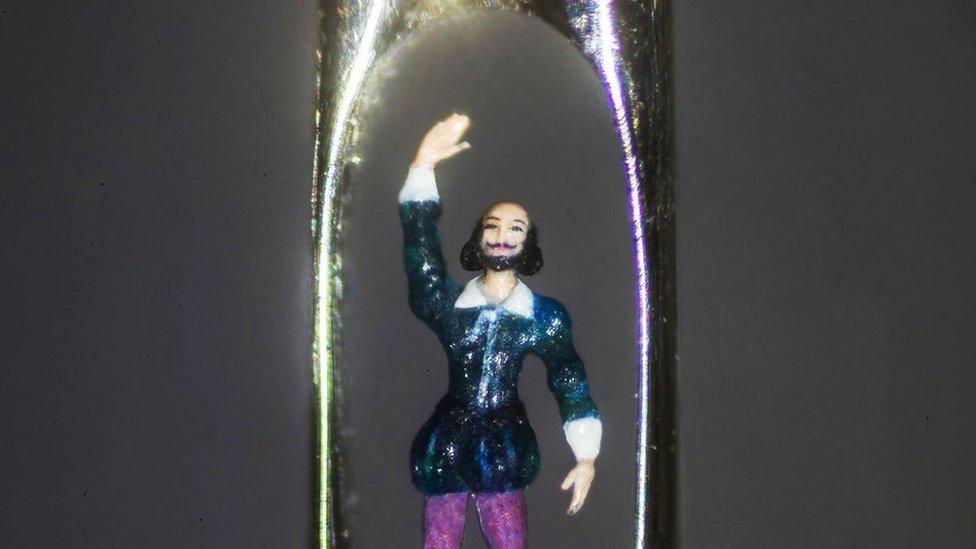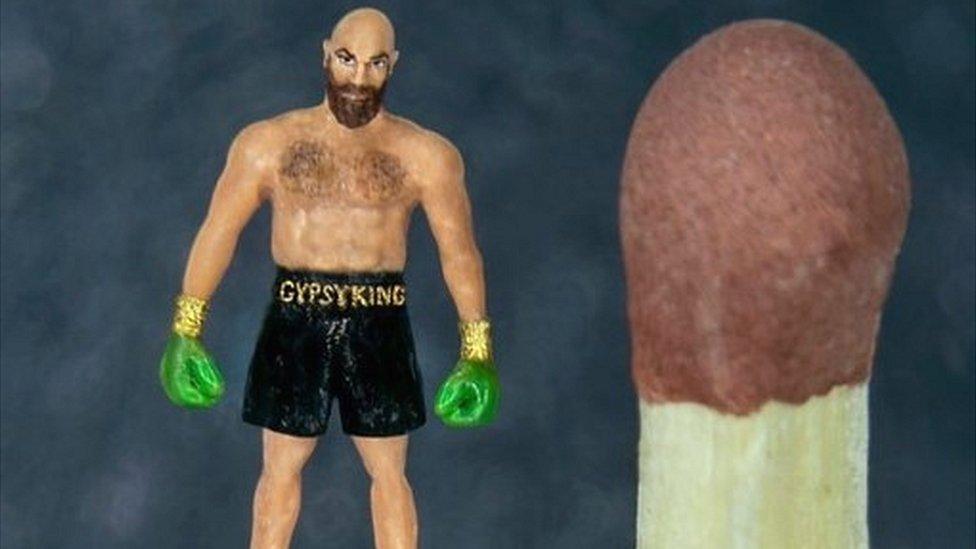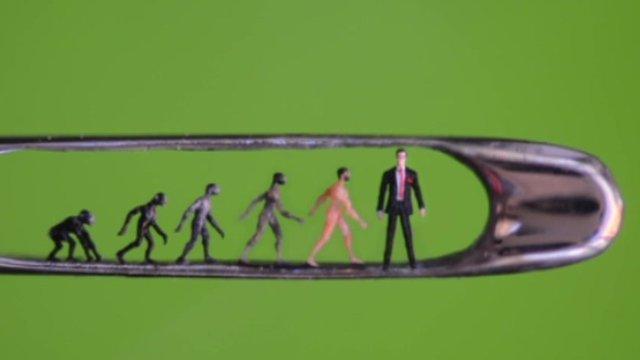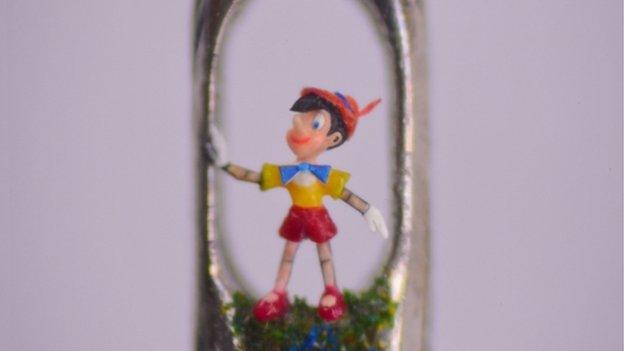Willard Wigan: Challenge of autism drove artist to succeed
- Published
'Autism is a gift, a blessing in disguise'
An artist famed for creating microscopic sculptures said his autism has inspired his success.
Willard Wigan MBE, 64, was diagnosed when he was 50, but believes his mother knew he struggled at school and encouraged him to create his tiny works of art.
The Birmingham artist, who was giving a motivational talk at a school, described his autism as a blessing.
"My inspiration is underestimation, because people underestimate," he said.
Mr Wigan said when he was young he used to ask himself, "Is there something wrong with me?"
"My mum would always say that there are diamonds in the dustbin, meaning people would throw them in to the bin and not realise what's in there until they've taken the lid off and realise they've thrown a diamond in there, and that's what autistic people are, they're diamonds," he said.

Mr Wigan created a microscopic sculpture of Shakespeare in the eye of a needle in 2016
Mr Wigan said when he was younger he used to have disorientation problems and what he described as repetitive behaviour.
He has since found purpose in his art, but added: "It drives me mad doing it, working 16-17 hours a day, all the way through the night."
To create the tiny sculptures he has trained himself to be very still, slowing down his breathing and becoming aware of background vibration and even his pulse.
"I don't get any pleasure at all, I only get pleasure when I finish it," he said.
Mr Wigan was appointed MBE for his services to art in 2007 and in 2018 he received an honorary doctorate from the University of Warwick for his achievements.
His work has also earned him two world records for the smallest sculptures ever created entirely by human hand.

Follow BBC West Midlands on Facebook, external, Twitter, external and Instagram, external. Send your story ideas to: newsonline.westmidlands@bbc.co.uk, external
Related topics
- Published14 October 2021

- Published18 April 2016

- Published14 January 2015

- Published2 January 2015
